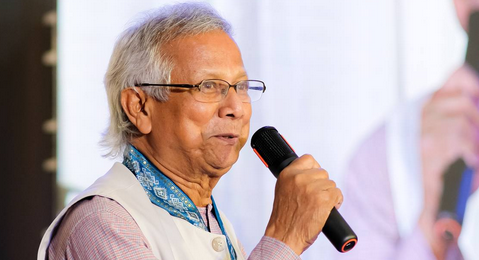Dhaka | Bangladesh is once again witnessing mounting political turmoil. Following the August coup last year, long-time Prime Minister Sheikh Hasina was forced to leave office and the country. In her place, Nobel laureate Muhammad Yunus took over as head of an interim government, but his administration now finds itself at the center of controversy.
The Controversial Ordinance
Yunus’ government recently issued an ordinance that allows the dismissal of any government employee within 14 days on misconduct charges, without due legal process.
Civil servants across the country have called the move a “black law”, labeling it unconstitutional and demanding its immediate withdrawal.
Ban on Protests in Dhaka
As opposition to the ordinance intensified, the Yunus administration banned all rallies and marches in Dhaka, Bangladesh’s capital.
On Monday, police sealed off Yunus’ official residence, the Bangladesh Secretariat, and surrounding areas. Protests had been ongoing outside the Secretariat for weeks, prompting the government to respond with increased security.
Heightened Security Measures
- Heavy police deployment near the Prime Minister’s residence.
- Barricades around key government buildings.
- Surveillance of internet and online platforms to prevent coordination of protests.
What Lies Ahead?
Political analysts warn that failure to withdraw the ordinance could lead to escalated unrest. Although the military has ruled out any coup plans for now, the current instability could push the country toward a larger crisis if not handled prudently.
